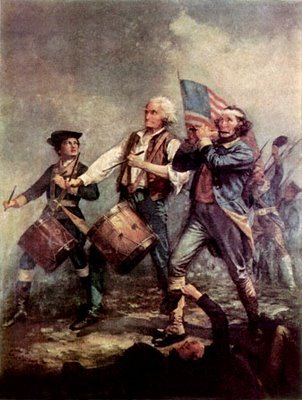Every once in a while one gets an insight into the sad state of higher education in the United States.

Back in 2008, when my agent was attempting to market the manuscript of what recently appeared in two companion volumes under the titles Montesquieu and the Logic of Liberty: War, Religion, Commerce, Climate, Terrain, Technology, Uneasiness of Mind, the Spirit of Political Vigilance, and the Foundations of the Modern Republic and Soft Despotism, Democracy’s Drift: Montesquieu, Rousseau, Tocqueville, and the Modern Prospect, he ran into an unexpected snag.
None of the editors at the trade presses he approached had ever even heard of Charles-Louis de Secondat, baron de La Brède et de Montesquieu.
That came as a shock to me; and when I repeated the story to other students of the eighteenth century, they expressed amazement and dread.
Book editors are a well-educated lot. They have to be if they are to succeed in their profession. If they have not a clue who Montesquieu was, then the same can be said for our intellectual elite as a whole – and that is not just a shame. It is a scandal.
There was a time when Montesquieu’s was a name to be conjured with, for the author of The Spirit of Laws bestrode the second half of the eighteenth century like a colossus. In fact, every major work that Montesquieu ushered into print quickly found a wide audience.
By 1800, his Persian Letters, which first appeared in 1721, had been published in ninety-three editions and had been translated into English, Dutch, German, Polish, and Russian – while his Considerations on the Causes of the Greatness of the Romans and their Decline, which was first published in 1734, had appeared in sixty-two editions and had been translated into English, Italian, Dutch, Swedish, Polish, Russian, and Greek.
Neither of these bore comparison with Montesquieu’s Spirit of Laws. This last work was in a self-evident way serious, and enormous it was as well. One purchased it expecting instruction and not diversion – diverting though it might be. And yet, from the moment of its release in the Fall of 1748, it sold like hotcakes.
By the end of the century, it had been published in one hundred twenty-eight editions, and it had been translated into English, Italian, German, Latin, Danish, Dutch, Polish, and Russian. To this one can add that, in the period stretching from 1748 to 1800, these three books were published together in editions of Montesquieu’s complete works no fewer than thirty-six times.
The Spirit of Laws was a publishing phenomenon, and it was much, much more. As the eventful second half of the eighteenth century began, Montesquieu’s great work became the political Bible of learned men and would-be statesmen everywhere in Europe, and beyond.
In Britain, it shaped the thinking of Edmund Burke, Edward Gibbon, William Blackstone, Adam Smith, Adam Ferguson, John Robertson, John Millar, Lord Kames, and Dugald Stewart among others.
In America, it inspired the Framers of the Constitution to embrace federalism and the separation of powers, and it provided their opponents, the Anti-Federalists, with ammunition as well.
In Italy, it had a profound effect on Cesare Beccaria, and in Germany, it was fundamental for Georg Wilhelm Friedrich Hegel.
In France, it was the starting point for all subsequent political thought. Its impact can hardly be overestimated.
If Montesquieu was so often consulted and cited by men of consequence in the eighteenth and early nineteenth centuries, if no political writer was more often mentioned and none was thought to be of greater authority in the era of the American and French revolutions, it was largely because, in The Spirit of Laws, he had announced his discovery, on the very doorstep of his native France, of a new form of government more conducive to liberty and graced with greater staying power than any polity theretofore even imagined.
Students of the form of political liberty peculiar to modern republics may still, then, have much to learn from considering what Montesquieu had to say a quarter of a millennium ago concerning the constitution of England – for, James Madison to the contrary notwithstanding, Montesquieu did not profess for “the particular government of England” an “admiration bordering on idolatry.”
He was a profound critic as well as an admirer, as sensitive to the imperfections inherent in the English form of government as he was to its many virtues; and the defects he and his intellectual heirs discerned in that polity and the propensities that arise therefrom are pertinent to understanding the political psychology of all modern republics and to tracing the sources of our present discontents.
If undergraduates at our colleges and universities are seldom now introduced to Montesquieu’s Spirit of Laws, it is a profound loss and an indication that they have been denied the intellectual tools requisite for understanding our country, its Constitution, and the parlous times in which we live.
COMMENTS
Please let us know if you're having issues with commenting.